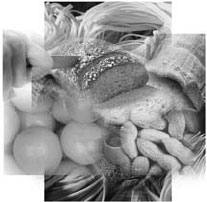I was recently reading Peter Drucker during my daily commutes (which, in Beijing, can be very long sometimes) and before I went to bed.
The book, Management Challenges for the 21st Century, was one of the last few he published and deals with management issues.

Putting things in the future perspective was what Drucker was good at. But it was also surprising to me to realize how fast the world has changed and how many new things have come up since the book was published in 1999 and its author died in 2005.
When Drucker was talking about the future, he said there were only a few things that could be regarded as certainties, and none of them was a pure business factor that people making corporate strategies were prepared to consider.
For instance, he said, to a large extent, future economic growth would be driven mainly by non-economic forces, primarily government, healthcare, education and leisure.
As a result, many industries, especially those belonging to the traditional manufacturing, would lose their importance and most of their products would find flattened demand.
This was a brilliant point. But if the author was writing the same book today, he would highlight one more non-economic force, namely the environment, and write a whole new chapter about its business implications.
One implication we can already see is the changing nature of agriculture.
In the past couple of years, both as a victim of the changing climate, adverse weather conditions here and there, and as a provider of the substitute for fossil energy, agriculture and related operations, such as forestry, have gained a lot more influence on our daily life than before.
In fact, traditional energy and food (actually farm products as new energy resources) have been the two most important factors to threaten us with a new round of inflation.
Not only traditional agriculture, but also the planting of some previously unknown oil-bearing shrubs and fruits are becoming industries to earn increasing capital input from the urban centers.
My meeting last week with a friend of a friend - a spontaneous interpreter-turned private entrepreneur who now runs an oil-bearing forest farm of more than 50,000 hectares in the back valleys of West China's Shaanxi Province - is a perfect example.

He told me he was preparing a trip to buy some mobile bio-diesel extractors from the United States.
It is hard to tell how long the trend of food price rises will continue. But one can already be confident enough to say both the importance of agriculture and people's expectation of it will change for ever.
In addition to its environmental significance, there is also a crucial link between agriculture and healthcare, or the rising health concerns in the world.
Since there is still no telling when government-run healthcare systems can provide the kind insurance people look for, they have to learn to take better care of themselves by being smarter consumers, especially when they shop for groceries.
Soon enough, the production of high-standard foods - grown with chemical-free techniques, and protected by bio-pesticides - will develop into a new industry as the necessary first link in man's food supply chain. So much more will still have to change.
E-mail: younuo@chinadaily.com.cn
(China Daily 08/13/2007 page4)

